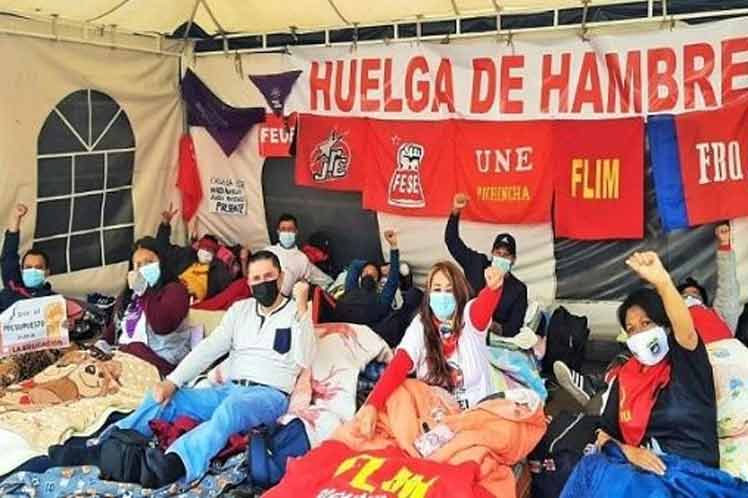The strike, convened by the National Union of Educators (UNE), began in four cities of the country and has already spread to 11 of the 24 provinces of the country, with the incorporation of students and parents thereof.
The protest is taking place in the Sierra, Costa and Amazon regions, where social and union organizations support the teachers’ demand.
The hunger strike began on June 12th in key points such as vicinity of the National Assembly, in the capital, as a measure to sensitize the central government authorities about the need for the Constitutional Court to order the implementation of the regulations, approved by the previous legislature in last April.
The modifications to the LOEI provide for the inclusion of specialized teachers for artistic and cultural teaching, as well as pedagogical personnel specialized in people with disabilities at all educational levels, and also providing an organic structure, multidisciplinary teams to the facilities dedicated to attending these groups.
It also provides for the connectivity in all public education establishments in the country and free internet service, in addition to recognizing years of experience for teacher revaluation and automatic recategorization and voluntary exchange of jobs between teachers.
Other contents of the regulation are the allocation of six percent of the Gross Domestic Product for education and advances in the equalization of the remuneration of teachers with the salary scale of the public sector.
Despite the extent of the hunger strike and the health problems reported by some of the protesters, the Constitutional Court continues without ruling on the request, described by many as ‘fair’ and ‘legitimate’.
pgh/llp/jcm/scm/gdc









